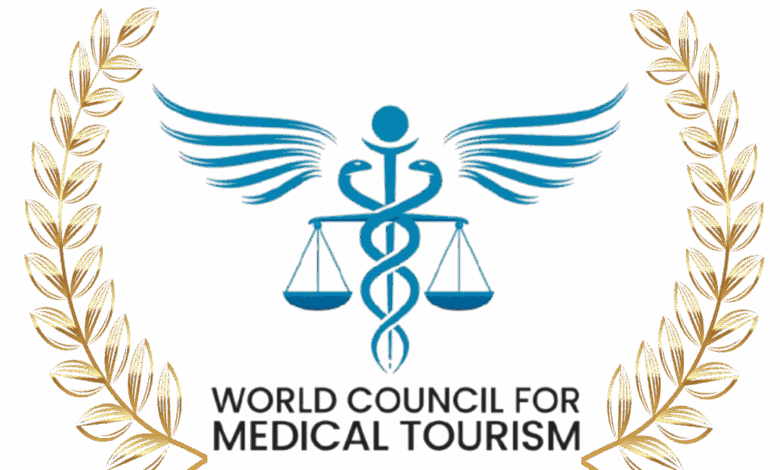New Challenges of Medical Tourism

Medical and wellness travel is a $105 billion industry annually. Approximately 44 million people travel for medical treatment annually, which is growing at around 9.7% annually. The demand for affordable, quality healthcare and services is at an all-time high due to high costs in some countries and a lack of access to necessary treatments. In many developed countries, extensive waiting times prompt citizens to seek treatment elsewhere. The World Council for Medical Tourism® is a private non-profit institution overseeing global governance and international protocols to protect patients, tourists, and healthcare providers, offering the only ISO compliance verification Certification. However, traveling for healthcare and wellness comes with its challenges. Navigating these challenges requires careful planning and thorough research to ensure a positive medical travel experience. Moreover, the World Council for Medical Tourism®, with the private and public sector, is developing new medical and wellness HUBs, helping the economy of the region by advising and establishing collaborations and investment between the local and international universities, pharmaceutical companies, medical device manufacturing companies, hotels, retirement centers, and medical institutions.
Quality of Care: While many facilities abroad offer high-quality services, there can be significant variability in care standards. It’s crucial to thoroughly research and verify the reputation and accreditation of medical institutions and their staff. This can be done by verifying if they have the World Council for Medical Tourism Certification.
Legal and Regulatory Issues: Different countries have varying regulations regarding medical practices. This has become the single most important challenge of medical travel. If something goes wrong, there may be limited options for legal recourse compared to what you would find in your home country. To ensure compliance with legal standards and internationally accepted
protocols, look for ISO-certified medical institutions recognized by the World Council for Medical Tourism®.
Cost Transparency: Although medical tourism often promotes lower costs, patients may encounter hidden fees. Unexpected expenses can arise for pre- or post-operative care, consultation fees, or complications.
Emotional and Psychological Factors: Dealing with a medical issue can be stressful, and traveling for care can increase this emotional strain. Patients may feel less secure when receiving treatment outside their home country.
Timeliness and Coordination: Scheduling appointments and coordinating travel logistics can be time-consuming and stressful. Delays in treatment or complications can further complicate the experience.
Common Questions:
- Why do people choose to travel for medical care?
People often choose medical travel for various reasons, including the opportunity for lower costs, access to high-quality care, shorter wait times, and the ability to combine treatment with a vacation. - How can I find a trustworthy medical facility or provider abroad?
Research is critical. Look for accredited facilities and check testimonials from previous patients. Consider working with an ISO-certified medical travel agency that can guide you through your options. The World Council for Medical Tourism® can provide a list of verified agencies that comply with legal and credible standards. - Are there risks associated with medical travel?
Yes, there are risks, including potential language barriers, varying standards of care, and lack of follow-up care. It is essential to thoroughly research and understand these risks before proceeding. The World Council for Medical Tourism® conducts extensive research worldwide and publishes travel warnings and newsletters to keep the international public informed. - Will my insurance cover medical travel?
Coverage varies by insurance provider. Securing ongoing care after returning home can be complex, especially if complications arise or if follow-up treatments are needed. Some plans may cover specific treatments abroad, while others may not. Check with your insurance company to understand your coverage options. The World Council for Medical Tourism® recommends reputable, certified health insurance companies that specifically service medical travelers on its website. - How can I ensure my safety while traveling for medical care?
Choose accredited medical facilities and look for ISO certification from the World Council for Medical Tourism®. Consult with healthcare professionals about your condition and consider using local patient advocates. Ensure that all documents provided to you are legal service contracts that hold validity internationally. All documents, such as informed consent forms, patient waivers, and service contracts, must be drafted by attorneys who specialize in international law and should be personalized for your case. It is a significant mistake to download general templates or purchase them from websites that claim to sell package deals. This practice is not only dangerous but may also fail to meet legal requirements. Each patient’s situation requires uniquely tailored documents. The World Council for Medical Tourism® can connect you with specialized attorneys who can assist you. - What should I prepare before traveling for medical treatment?
Firstly, familiarize yourself with the necessary laws regarding the transfer of medical records, as there are specific legal procedures involved. Should any mistakes or errors occur in the transfer of medical information, it is crucial to ensure that all requirements are met to avoid complications.
If you need help, please visit our website
www.worldcouncilformedicaltourism.org
info@worldcouncilformedicaltourism.org






Leave feedback about this